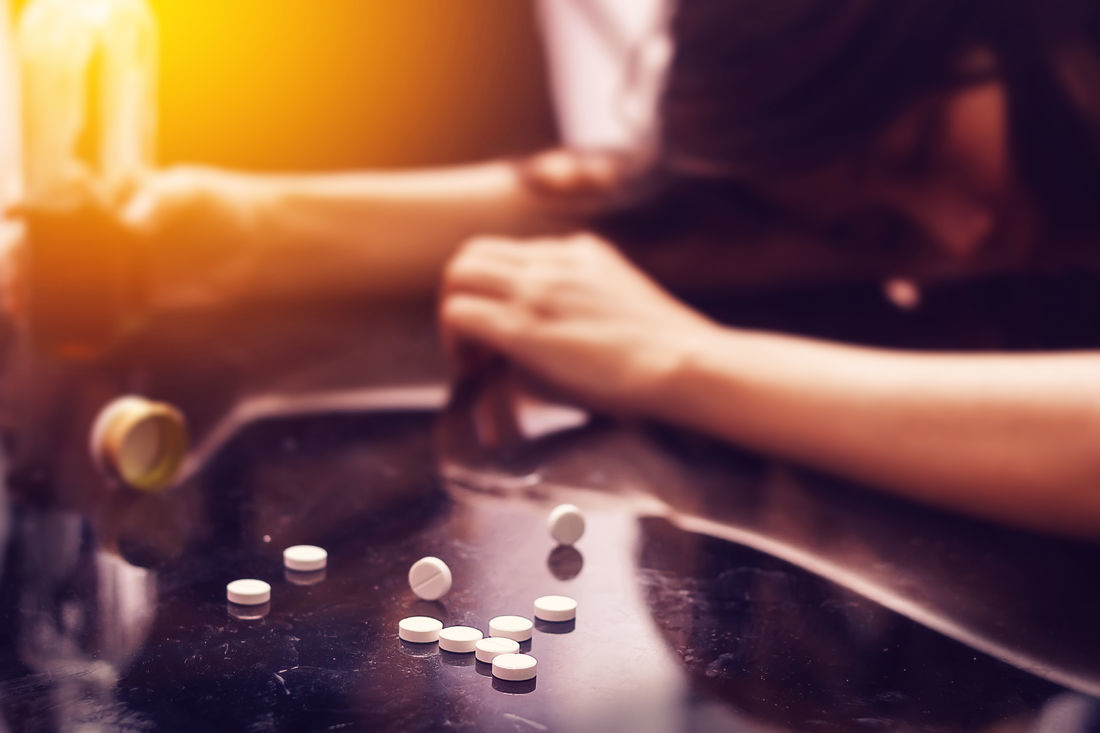You’ve probably heard or seen a warning on medicines that state “don’t drink this with alcohol.” We’ve become so immune to labels that most people don’t even bother reading or paying attention to warnings. However, we’re here to tell you that the danger is real.
Drinking alcohol with certain medication can result in nausea, vomiting, headaches, drowsiness, fainting, or loss of coordination. Moreover, alcohol can make medicine close to useless or decrease its efficiency. It can also make it entirely toxic for your body.
Alcohol and Medicine
Never mix alcohol with medicines. Alcohol, just like some medicines, can make you feel sleepy, drowsy, lightheaded, and unstable. Drinking alcohol when you are on medication will on intensify these results and make you feel significantly worse. You may find yourself unable to do basic tasks or have trouble concentrating.
While consuming alcohol before driving is dangerous because it affects your ability to concentrate, drinking alcohol when you are on medication only makes this worse. Not only are you at greater risk to harm yourself, you are also at greater risk to harm those around you.
Read the Label
It is always a good idea to read the medication label. Do your research before trying any kind of new product or ointment. On the medicine label, you will find information, such as:
- The active ingredients present in the medicine, including each ingredient’s dosage
- The purpose and uses of the medication
- Dosage instructions, including how to take medicine and when to take it
- Warnings about interactions with drugs and alcohol
- Activities that need to be avoided while taking the medicine
- Inactive ingredients present in the medicine to help people prevent allergic reactions
Side Effects
While drinking alcohol does not make medicines like antibiotics less effective, it might still increase your chances of experiencing some side effects. Pro tip: never drink alcohol with cefoperazone, cefotetan, doxycycline, erythromycin, metronidazole, tinidazole, ketoconazole, isoniazid, linezolid, and griseofulvin.
Here’s what can happen if you drink alcohol with these drugs:
- Nausea
- Vomiting
- Flushing (redness of the skin)
- Headache
- Dizziness
- Lightheadedness
- Digestive problems, such as diarrhea, stomach pain, and ulcers
- Tiredness
- Excessive sweating
- Increased heartbeat
- Liver damage
- High blood pressure
How Alcohol Affects Healing
Alcohol can interfere with the healing of your infection, even if it allows certain antibiotics to do their work. Sufficient rest and a nutritious diet can help heal the infection, but drinking alcohol can hinder your progress. Alcohol can disrupt your sleep pattern and keep you from having a full night's sleep. Moreover, it can also hinder your body from absorbing important nutrients. Did you know that alcohol can increase your blood sugar levels and significantly reduce energy levels?
Alcohol is not only found in beer, wine, liquor, and some drinks. It can also be found in mouthwashes and cold medications. Hence, before using a product, make sure to look at the labels, especially if you have had an alcohol-antibiotic reaction before. In most cases, this would not be an issue as most doctors only prescribe antibiotics for a week or two.
Struggling with a health concern? Get in touch with Kingswood Compounding Company today!

